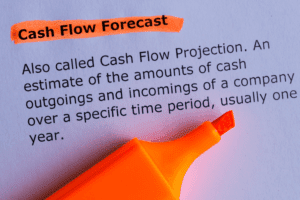
The company that receives the prepayment records the amount as deferred revenue, a liability on its balance sheet. Unearned revenue is usually disclosed as a current liability on a company’s balance sheet. This changes if advance payments are made for services or goods due to be provided 12 months or more after the payment date. In such cases, the unearned revenue will appear as a long-term liability on the balance sheet. Unearned revenue and deferred revenue are two different ways to describe the same thing — advance payments a company receives for products or services that are to be delivered or performed in the future. Since this revenue is a prepayment, it is not yet “earned.” It won’t be recorded as revenue on the income statement until the goods or services already paid for have been delivered to the customer.
Can You Have Deferred Revenue in Cash Basis Accounting?
Unearned revenue is money received by a company for a service or product that has yet to be provided or delivered. These advanced payments are recorded on a company’s balance sheet as a liability because they represent a debt owed to the customer. Once the product or service is delivered, unearned revenue becomes revenue on the unearned revenues are amounts received in advance from customers for future products or services. income statement. Unearned revenue is prepayment a customer pays for goods and services to be delivered in the future.
Real-time visibility into unbilled revenue with CPQ analytics
The unearned revenue account will be debited and the revenues account will be credited the same amount. This means that two journal entries are made for unearned revenue — one when the income is received and and one when the income is earned. The company sends the newspaper to its customer each month and recognizes revenue as the fiscal year progresses. The accountant records a debit entry to the deferred revenue account monthly and a credit entry to the sales revenue account for $100. The entire deferred revenue balance of $1,200 has been gradually booked as revenue on the income statement at the rate of $100 per month by the end of the fiscal year.

Unearned Revenue: What It Is, How It Is Recorded and Reported
- It can be thought of as a “prepayment” for goods or services that a person or company is expected to supply to the purchaser at a later date.
- When the customer prepays for the product or service, that income is considered unearned income because the goods and services have not yet been delivered.
- This means the business earns $10 per issue each month ($120 divided by 12 months).
- Unearned revenue and deferred revenue are two different ways to describe the same thing — advance payments a company receives for products or services that are to be delivered or performed in the future.
- This time, the company will debit its unearned revenue account while crediting its service revenues account for the appropriate amount.
You’ll see an example of the two journal entries your business will need to create below when recording unearned revenue. Taking the previous example from above, Beeker’s Mystery Boxes will record its transactions with James in their accounting journals. A company that’s reporting revenue conservatively will only recognize earned revenue when it has completed certain tasks to have full claim to the money and when the likelihood of payment is certain. Media companies like magazine publishers often generate unearned revenue as a result of their business models. For example, the publisher needs the cash flow to produce content through its various teams, market the content compelling to reach its audience, and print and distribute issues upon publication. Each activity in a publisher’s contribution margin business strategy can benefit from the resulting cash flow of unearned revenue.

Unearned Revenue Reporting Requirements

Delays in billed revenue and advance payments can lead to cash flow issues, errors in the balance sheet, financial statement inconsistencies, and missed revenue opportunities. Unearned revenue can provide clues into future revenue, although investors should note the balance change could be due to a change in the business. Morningstar increased quarterly and monthly invoices but is less reliant on upfront payments from annual invoices, meaning the balance has been growing more slowly than in the past. For help creating balance sheets that can track unearned revenue, consider using QuickBooks Online. QuickBooks offers a wide range of financial reporting capabilities, along with expense tracking and invoice features. Creating and adjusting journal entries for unearned revenue will be easier if your business uses the accrual accounting method, of which the revenue recognition principle is Bookkeeping for Chiropractors a cornerstone.

COMPANY
- Unearned revenue is also referred to as deferred revenue and advance payments.
- It’s important to rely on accounting software like QuickBooks Online to keep track of your unearned revenue so that you can generate accurate and timely financial statements each accounting period.
- After James pays the store this amount, he has not yet received his monthly boxes, so Beeker’s Mystery Boxes would record $240 as unearned revenue in their records.
- The payments collected from the customer would remain in deferred revenue until the customer has received in full what was due according to the contract.
- These advance payments can improve your small business’s cash flow, since it now has money to use to produce the requested products or perform the required services.
- This type of revenue, for one, provides an opportunity to help small businesses with cash flow and working capital to keep operations running and produce goods or provide services.
- A company that’s reporting revenue conservatively will only recognize earned revenue when it has completed certain tasks to have full claim to the money and when the likelihood of payment is certain.
Generally, it’s assumed that the product or service purchased will be delivered within a year, making it a current (or short-term) liability. White the positive cash flow is nice, it’s important for business owners to remember that unearned income is considered a liability in small business accounting, rather than a revenue. It’s a liability because it’s essentially a debt the company owes the customer. In order to turn unearned revenue into actual revenue, the business must deliver the goods or service to the customer. Businesses can benefit from unearned income because customers pay in advance to receive their products or services.
